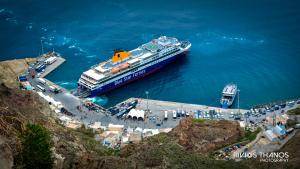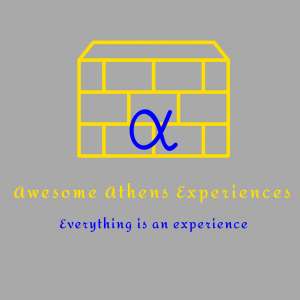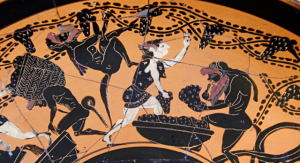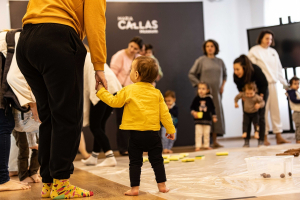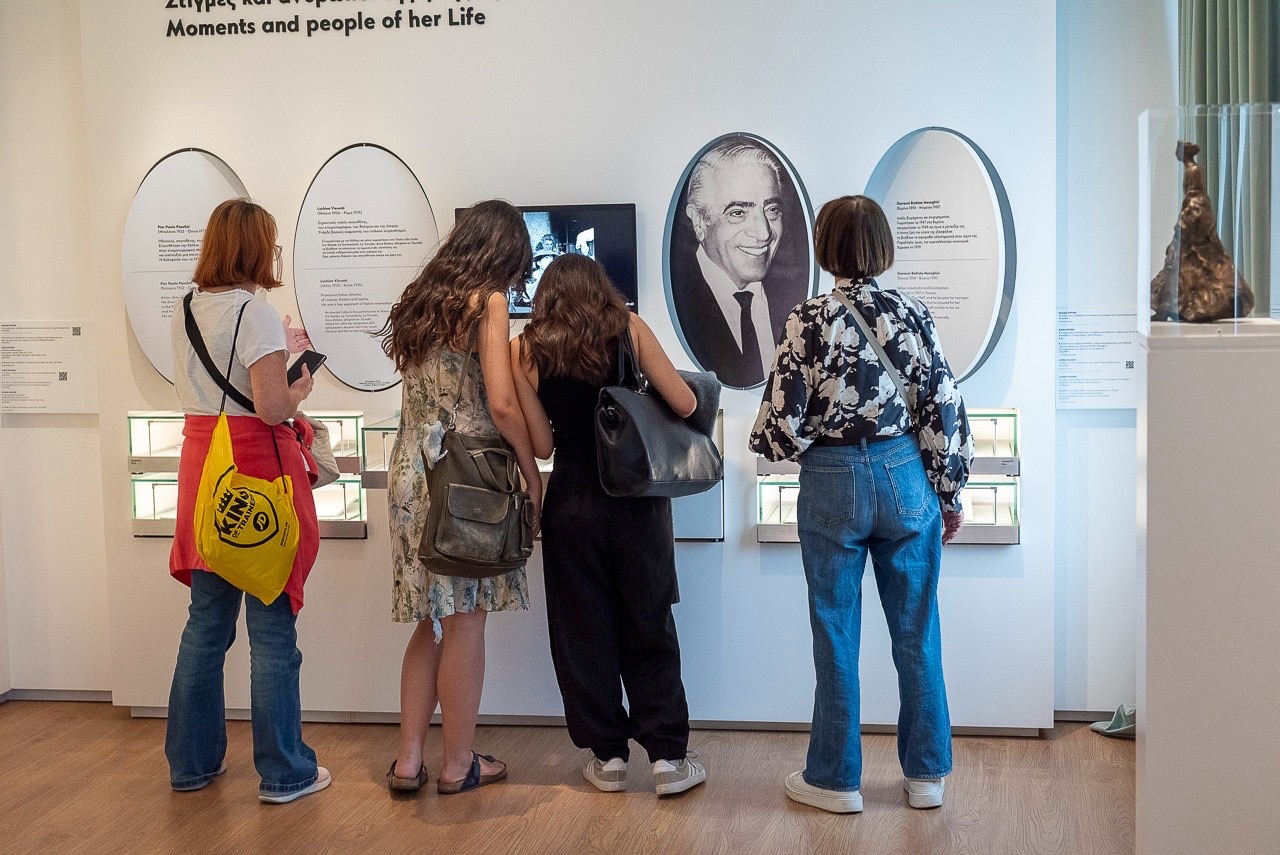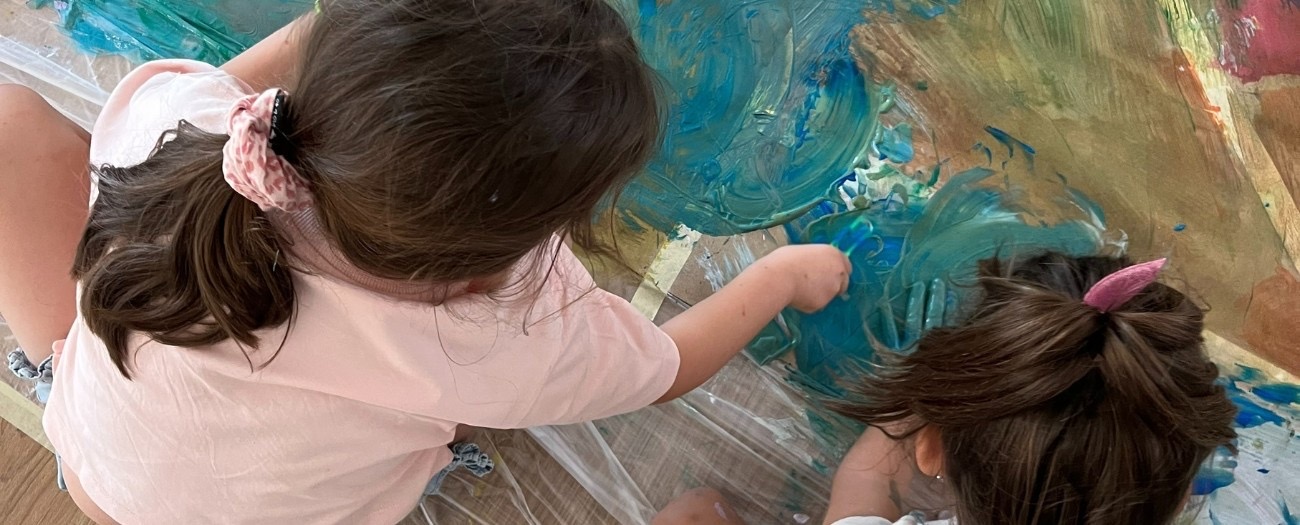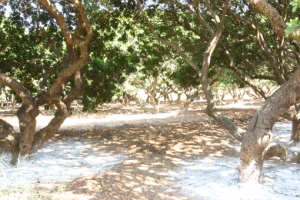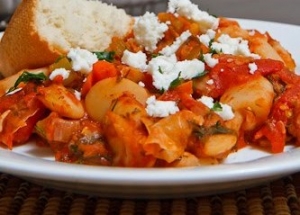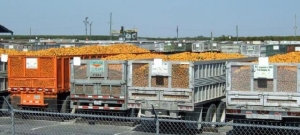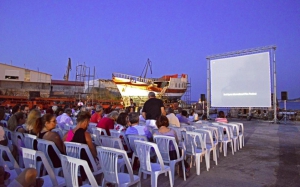The beans are baked in a simple tomato sauce that reminds me a lot of a marinara sauce that uses plenty of fresh herbs. This recipe takes a bit of time with the soaking the beans over night followed by simmering them and then making the tomato sauce and finally baking everything but it is worth it. The gigantes plaki turned out really well! The beans were nice and tender and creamy and they had a great meaty texture. The tomato sauce had reduced down until it was nice and thick and full of flavour! I made sure to leave the beans in the oven until the top just started to charred and those caramelized bits were the tastiest part of all. I served the gigantes plaki with some crusty bread to wipe up all of the tasty tomato sauce and a garnish of feta. The gigantes plaki also works well as an appetizer in crostini form.
Gigantes Plaki (Greek Baked Beans)
(makes 4 servings)1 pound dried gigantes beans (or butter beans or elephant beans or large lima beans, etc.)
3 bay leaves
1 tablespoon olive oil
1 onion (diced)
1 carrot (diced)
2 ribs celery (diced)
4 cloves garlic
chili pepper flakes to taste
1 (28 ounce) can diced plum tomatoes
1 teaspoon paprika
1 teaspoon oregano
salt and pepper to taste
1/4 cup parsley (chopped)
1/4 cup dill (chopped)
1. Soak the dried gigantes beans in water with the bay leaves over night.
2. Bring the water to a boil and simmer until the beans are tender, about 30-40 minutes.
3. Heat the oil in a pan.
4. Add the onions, carrot and celery and cook until tender, about 10-15 minutes.
5. Add the garlic and chili pepper flakes and cook until fragrant, about a minute.
6. Add the tomatoes, paprika and oregano and simmer until the sauce thickens, about 20 minutes.
7. Season the tomato sauce with salt and pepper to taste.
8. Mix the parsley, dill, beans and 1/2 cup of the liquid that the beans were cooked in into the tomato sauce.
9. Pour the mixture into a casserole dish.
10. Bake in a preheated 350F oven until the top is browned and most of the liquid has evaporated, about 50-60 minutes.


